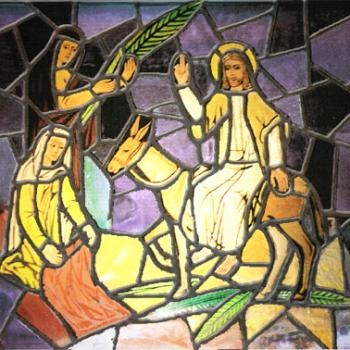That doesn't mean that we should expect to see Mormons pulling wagons full of scriptural texts from all sorts of traditions with them to church. The Bible and the Book of Mormon, with the Doctrine and Covenants and Pearl of Great Price, will continue to be the canon of the LDS Church. But Mormon eyes and minds ought to watch for the testimonies of other scriptural texts and pay attention to them. Rather than divide ourselves from others who do not share our particular religious beliefs, we should join our testimonies with theirs, as their scriptures join ours in testimony.
The Quran is a particularly important example of a book to which we can join our testimony. It is important that we be acquainted with it, not only because so much of the world's population is Muslim. Perhaps more important, we should know something about it because, more than probably any other non-Christian text, its teachings and testimony run together with those of the Mormon canon.
It is not difficult to read the Quran and believe that its words are inspired by God. (Those who object to its violence but accept the Hebrew Bible as scripture ought to ask themselves when was the last time they read that violent book—and whether it predisposed them and other Jews and Christians to violence.)
Though, obviously, Mormons do not think of the Quran in the same way they think of the Bible and the Book of Mormon because its teachings about Jesus do not include his divinity, it doesn't follow that we cannot understand the Quran as inspired and Muhammad as a prophet. In that spirit, I can say not only that I know the Bible and the Book of Mormon to be the word of God, I can also say I know the Quran to contain his word.





